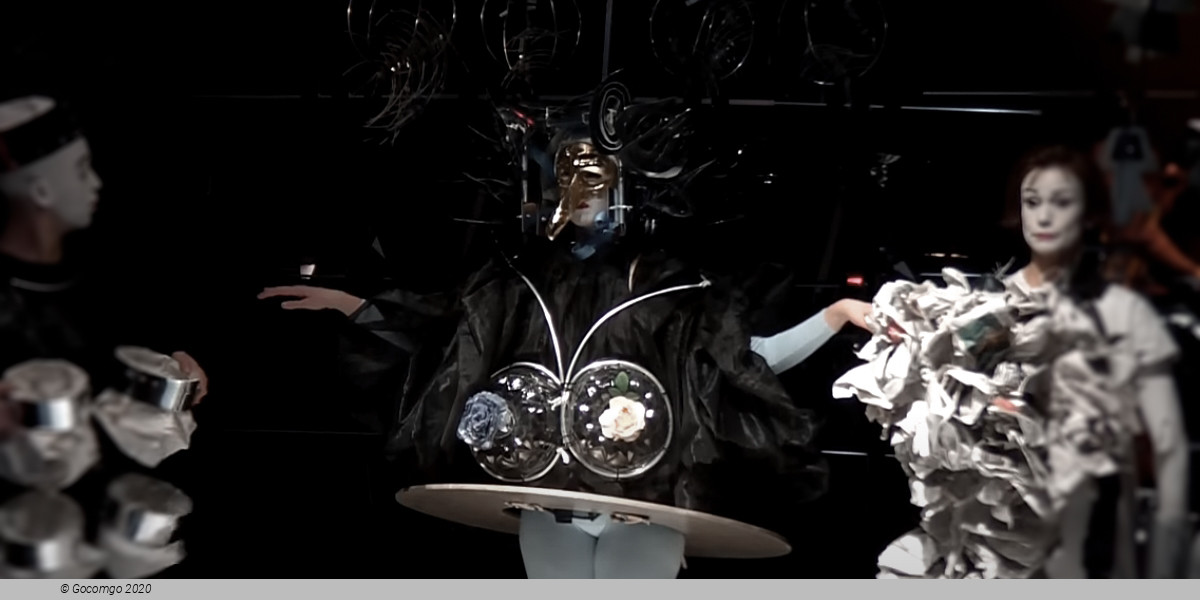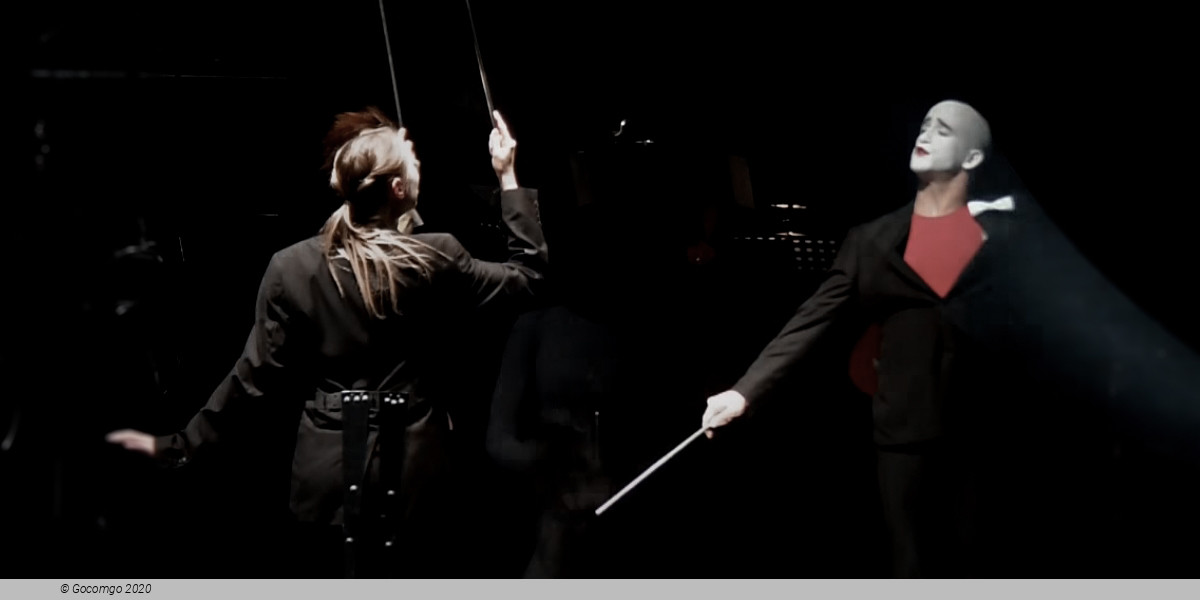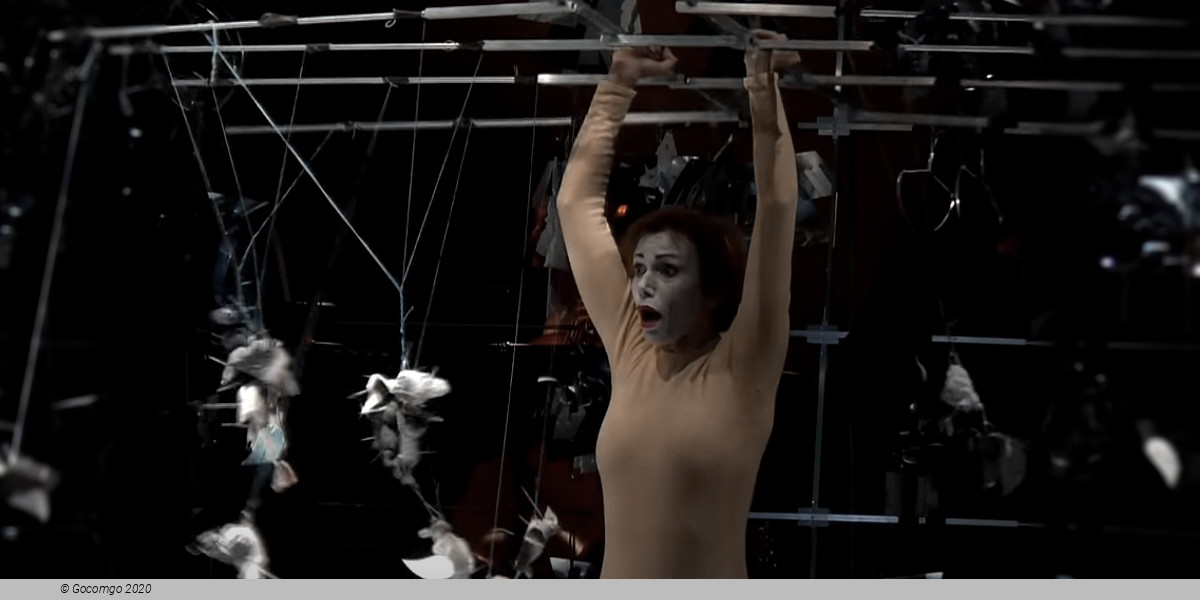Prologue
The Nightingale welcomes the audience to the Kingdom of Birds where unburdened effortlessness reigns, free from human toil. Yet, she too has deep desires and knows pain, though is unable to quite define it.
Act One
Hoffegut and Ratefreund are on a search for the King of the Birds, Hoopoe. Ratefreund seeks to free himself from humans and their dark arts, looking instead to the birds for sanctuary. Hoffegut, on the other hand, has been much strung along by the ladies, so hopes to find love among the birds instead. The Wren is curious about these two characters who declare outright their wish to find Hoopoe who himself used to be a man. When the two men glance over Hoopoe’s somewhat dishevelled feathers they are amused at his distinctly unregal appearance. They then very matter-of-factly announce their desire to flee human worries and seek refuge with the birds. Quite euphorically, Ratefreund promises Hoopoe that the birds are called to greatness. He urges them to establish a city in order to consolidate their power. The birds should intercept the sacrifices made by humans to the gods as they ascend into heaven, thus withholding sustenance from the gods and rendering them powerless. Hoopoe is enthusiastic and wants to rally the birds behind this plan. The Nightingale and Hoopoe call all the birds together. However, the birds are extremely unhappy that Hoopoe is in cahoots with the humans which they consider a form of betrayal. Hoffegut and Ratefreund are already trying to leave but Hoopoe stops them, saying that he too once came as a man. Ratefreund flatters the birds by reminding them that they are an ancient race, older even than the gods themselves. It is then only proper that they should also be more powerful than the gods. He argues that at present they are being mistreated by the humans. The speech works. The birds decide to follow his advice. First they must build a city and then they can challenge Zeus. Hoffegut imagines a positive future. The birds, Hoopoe, Ratefreund and Hoffegut get to work. Hoffegut is amazed to see that Ratefreund has already donned a cloak of feathers.
Act Two
The Nightingale, who, before her transformation into a bird, killed her own son Ithys, is tormented by bitter reminders of her past. Hoffegut is mesmerised by the song of the Nightingale. He calls to her but she is shy of humans and responds only hesitantly to his compliments. She is unsure, so acquainted with being exploited by others to sing ever more beautiful melodies. Hoffegut declares his love for her, but the Nightingale knows only an idea of love, such as that which manifests itself in the light of the moon. She kisses him. In the murky light of dawn the birds’ newly established city reveals itself. Hoopoe feels like a king. A festive parade of birds files into the city, but the joyful procession is interrupted. Prometheus has secretly scouted out the birds and their city. Ratefreund confronts him bravely – though without recognising him. Hoopoe demands duty from the stranger who naturally point-blank refuses. He is curious as to why they were unable to appreciate their freedom as birds. Hoopoe, however, contends that they were enslaved and now want to challenge Zeus. Prometheus warns them of Zeus who could punish their rebellion at any moment. Prometheus tells of his own desire to rise up against Zeus which he payed dearly. The birds, however, inflamed again by Ratefreund’s rhetoric, call for war against Zeus. Zeus reacts promptly. He summons the four winds and strikes the city with a fearsome bolt of lightning. Everyone at once humbly acknowledges Zeus’s power, against which they would never have stood a chance. Ratefreund wants to go back to the city of humans. He wasn’t able to accomplish his grand plans among the birds. At least Hoffegut understands that he has experienced something special during his encounter with the Nightingale. With the song of the Nightingale still resonating in his ears he feels as though he has truly “lived”.
Prologue
The Nightingale welcomes the audience to the realm of the birds, extolling its utopian virtues. Nevertheless, she confesses to an unfulfilled longing within her own soul.
Act 1
Good Hope and Loyal Friend, disillusioned with their fellow men, have journeyed to a desolate region in search of the Hoopoe, king of the birds. They encounter the Wren, who is suspicious of humans, but they manage to persuade her to summon her master. Awakened from sleep, the Hoopoe-who had once been a man himself-confronts Good Hope and Loyal Friend, who declare their desire to live among the carefree birds. When the Hoopoe sighs that the birds have no real kingdom to call their own, Good Hope observes that the sky is their domain. The Hoopoe demurs, remarking that the air belongs to all creatures. Loyal Friend has a sudden brainstorm. He proclaims that the birds should build a great city in the clouds, fortified against men below and the gods above. Good Hope is skeptical, but the Hoopoe embraces the scheme wholeheartedly and summons the birds to his side, announcing that two men have arrived with a plan that will benefit the birds. The birds' first reaction is to denounce the men as wicked and treacherous. However, despite a warning from the Eagle, the Hoopoe prevails upon the mob to hear them out. Playing on their emotions, Loyal Friend harks back to a golden age when the birds were revered by men, and incites them to reclaim their lost glory. Galvanized, the birds commit to the scheme hatched by Loyal Friend, even if it means war. Good Hope is caught up in the excitement too, naively envisioning a better world within reach. Emboldened by his success, Loyal Friend demands that the birds honor him as their lord and master, and they willingly acquiesce. Amid much rejoicing, the birds rush off to begin their grand undertaking.
Act 2
It is the following night. Good Hope is awakened by the song of the Nightingale. He feels revitalized, intoxicated by her sweet voice. Good Hope entreats the Nightingale to come closer, and asks her to teach him to see the world through her eyes. At first she tells him that he can never understand what it means to live in harmony with the universe, but his declaration of love sways her, and she imparts a kiss to his forehead, granting his desire. The air is filled with the voices of the scent of flowers, and Good Hope succumbs to their enchantment, sinking unconscious to the ground. Daybreak illuminates the citadel in the sky built by the birds. Led by the Hoopoe and Loyal Friend, the birds vaunt their lofty achievement and their imminent dominion over all living things. A wedding procession makes it way through the crowd, led by the Wren, who proudly heralds the arrival of the first newlyweds to enter the great city. Everyone joins the nuptial celebration, which culminates in a ceremonial dance led by two Doves as the bride and groom. The mood is shattered when more birds rush in, clamoring that a mighty creature has broken through the barricades. The stranger enters, heavily cloaked, and the birds cower in fear. The Hoopoe and Loyal Friend challenge the intruder, who announces that he has come as a friend to admonish them; through the grace of Zeus, they have been given a chance to mend their ways and submit to the will of the gods. The birds react defiantly, whereupon the stranger reveals that he is the titan Prometheus, who himself had once rebelled against the gods and had been punished severely. Despite this dire warning and the misgivings voiced by Good Hope and the Hoopoe, Loyal Friend brashly exhorts the birds to wage war against the gods. Suddenly a terrible storm breaks forth, manifesting the wrath of Zeus, and a thunderbolt destroys the citadel of the birds. Chastened, the birds sing a hymn of praise and thanksgiving to Zeus. Loyal Friend emerges from hiding, clearly rattled but putting up a good front. Dismissing the whole adventure among the birds as a foolish lark, he urges Good Hope to return with him to the comforts of home in the city. Good Hope lingers for a moment, reflecting upon his brief encounter with the Nightingale, an experience which will live forever in his heart. As he turns to leave, the call of the Nightingale is heard once more; overwhelmed with emotion, Good Hope sets out on his journey home.





 Max-Joseph-Platz 2
Max-Joseph-Platz 2